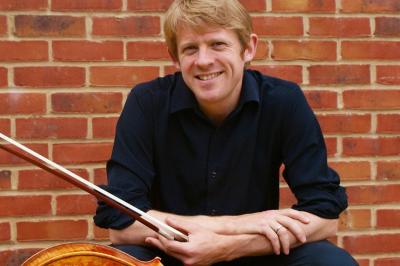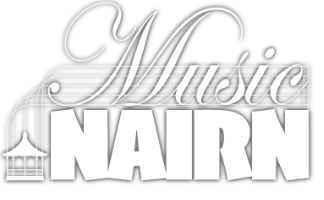Emma Johnson and John Lenehan
A concert by clarinettist Emma Johnson is always a delight, and her very welcome return visit to Music Nairn attracted a large audience. With her accompanist of many years standing, John Lenehan, she opened her recital with an arrangement of a movement from the Viola Sonata by Rebecca Clarke. A student of Stanford, Clarke suffers the double disadvantages of being a female composer in an age when composing was seen as a male prerogative but also, like most of the composers of her generation, finding themselves going dramatically and unjustifiably out of fashion. The Impetuoso movement revealed a composer of considerable imagination and subtlety, while the fact that it works extremely effectively on clarinet makes it a valuable addition to the repertoire. Next came a core work from the clarinet repertoire, but a piece occasionally played on the viola, Brahms' Eb Clarinet Sonata. Composed in the autumn of his life, Brahms' works for clarinet were all written for the German clarinettist Richard Mühlfeld, a remarkable musician whose playing captivated the aging composer. Emma Johnson's creamy tone and lyrical style brought this fine music vividly to life, while John Lenehan made light of the considerable technical demands of the piano part to produce a memorable account. In this music and the rest of the programme both Johnson and Lenehan seemed to be living every single note of the music, exploring every nuance and characterising every phrase.
In introducing Donato Lovreglio's Fantasy on themes from Verdi's 'La Traviata' Emma Johnson omitted to mention in her introduction the hair-raising technical demands of a work which wreaths its original thematic material in cascades of elaboration. In a bravura performance she fairly flew through Lovreglio's showy treatment of some very familiar Verdi!
The second half opened with Debussy's lovely Première Rhapsody – sadly notwithstanding the title, no further rhapsodies were forthcoming, which is a great pity as this piece, which inhabits the same leafy world as the same composer's Prelude à l'après-midi d'un faune, is a beautifully evocative work which makes superb use of both clarinet and piano. Malcolm Arnolds acerbic Clarinet Sonatina is as eclectic and colourful in its character as was its composer, and Johnson and Lenehan's other life as jazz players informed their sparkling performance. Calm was restored with Vaughan Williams' Six Studies on English Folk Song, a set of lyrical contemplations on some of the traditional melodies the composer had collected. Written originally for cello and piano, the composer subsequently transcribed the studies for a variety of solo instruments, of which the version for clarinet is particularly effective. Johnson's warm tone, ranging from a striking pianissimo to a more assertive forte, proved the perfect medium for this expressive music.
The duo returned to a more glitzy jazzy idiom with the effervescent Riffs section of Leonard Bernstein's Prelude, Fugue and Riffs, originally composed for Woody Hermann's jazz band with a prominent solo clarinet part for the band leader to play. This rip-roaring performance segued neatly into a delicate account of Somewhere from Bernstein's West Side Story and the irresistibly toe-tapping show-stopper America. Sustained applause for what had been a substantial and varied programme, beautifully played and seamlessly introduced, elicited an encore - an infectious account of the Gershwin classic I got Rhythm to send us sashaying into the night.
Forthcoming Events






